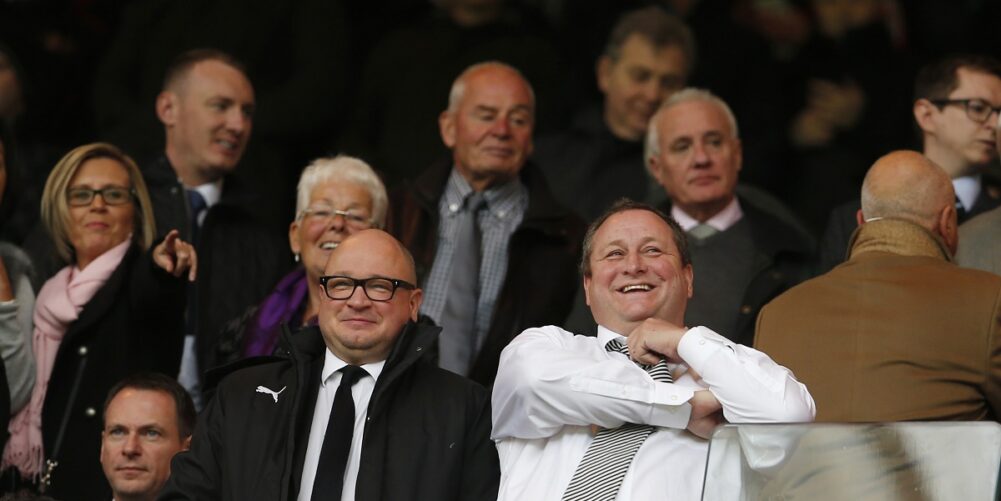(Photo: Action Images)
EARLIER this season, I asked a former manager to describe his biggest frustration after years working at the sharp end of the Championship.
Naturally, I expected stock responses. The impatience of chairmen, the fickleness of fans. The grasping of agents and the tantrums of their charges. The irrational fear of failure that has reduced the average tenure of a manager to less than ten months.
Surprisingly, he instead lamented a lack of assistance. To illustrate his point, the manager painted the picture of a transfer he'd conducted while working for one of the game's most famous names.
Lacking a chief scout, he'd first relied on his coaches to do the donkeywork, then a hasty appraisal with his own two eyes.
Vaguely satisfied, he then had to locate his chairman and ask for funds, a process which wasn't as straightforward as it sounds.
For most managers, that would represent job done; next time they clapped eyes on their shiny new acquisition would be when he walked through the door, Armani boot bag in hand.
Yet a week later, this manager – a former footballer as opposed to a trained lawyer – found himself parked at a desk, going through the fine print on the player's contract, then faxing the details off to the FA.
He wanted a scout. He'd have liked a secretary. But, most of all, he craved a director of football, a boss and buffer who could take the strain and allow him to coach.
At the time, I thought this was a unique viewpoint, informed by an extreme experience. After all, aren't directors of football supposed to be an unaccountable, interfering waste of money who know nothing about football? Harry Redknapp certainly thought so.
“I'm not in favour of it at all,” said the 69-year-old, shortly before accepting a role as Derby's director of football in 2014. “As a manager, my head's on the block when it goes wrong so why should I be accountable for someone else's mistakes? It's a nonsense.”
So far, so standard. Yet this week, the director football model was endorsed in almost identical fashion by Robbie Neilson, the new man in charge at MK Dons.
“It's the best thing a manager can have,” insisted the 36-year-old, who worked alongside veteran Scotland manager Craig Levein at Hearts.
“Right now we're getting new kit for next year. I've got the list of how many pairs of shorts we need to order, how many pairs of socks we need. Up the road at Hearts, the kitman and the director of football would do that.
“At the moment if I am dealing with an agent, I make ten phone calls back and forward. That can be half a day's work. Even things like the liaison with the recruitment department, who's going where?”
So what, you might say. For the kind of salaries bandied about in League One, most of us would juggle tasks like a circus act juggles swords.
But if football is about marginal gains, how detrimental an impact did Karl Robinson's workload have on MK Dons' relegation from the Championship last year? If he was ordering kit and organising scouts, he certainly wasn't thinking about how to outwit Sean Dyche or Aitor Karanka.
Meanwhile, up in Huddersfield, David Wagner was perfecting his style on the training ground or analysing opponents, safe in the knowledge that lynchpin Stuart Webber was knee deep in the nitty gritty of running a football club.
In fact, the Terriers have employed a head of football operations (the DoF role has many aliases) for five years. Overseeing youth development, building support staff for the manager, scouting players.
Is it really coincidence that Huddersfield have survived in the Championship when so many clubs with bigger budgets have failed? That they are currently overperforming so spectacularly?
Redknapp's view is outdated. After the cack-handed efforts of a decade ago (Avram Grant at Pompey, Dennis Wise at Newcastle) no club would dream of excluding a manager from the recruitment process, as is the norm in Italy. Culturally, it is a step too far.
The role has evolved. Now, the director of football is a combination of strategist, go-between and load-lightener. His job to give a manager time to breath and think. The symbiosis between Rafa Benitez and Lee Charnley at Newcastle is another prime example.
In an era of spiralling player wages, it is a cheap method of gaining an advantage. Anyone who fails to recognise that is surely missing a trick.

















